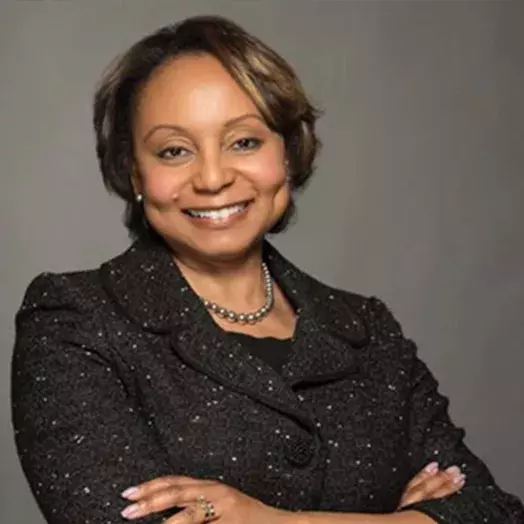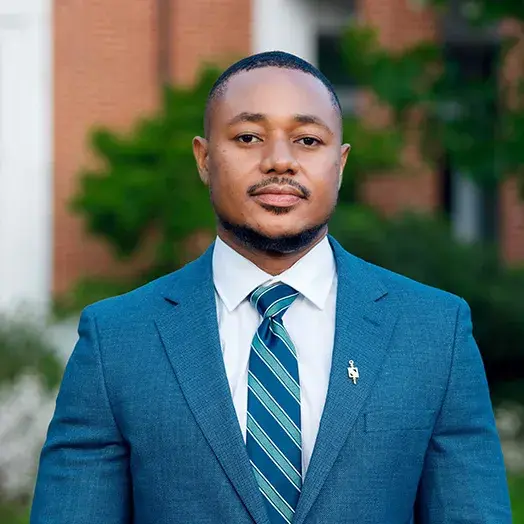Deputy Comptroller Sharonne Bonardi is at the forefront of Maryland’s tax policy, stimulus distribution, and recovery plans throughout the COVID-19 pandemic.

Maryland deputy comptroller Bonardi (’00) leads state tax policy through pandemic
The COVID-19 pandemic brought financial hardships to taxpayers across the U.S.
Conversations about small business regulation and tax administration were at the forefront of stimulus bills and recovery plans. And in Maryland, Deputy Comptroller Sharonne Bonardi helped lead the state through the unprecedented year.
Bonardi began working for the State of Maryland while studying law at the University of Maryland. After earning her law degree in 1992 and then her Carey MBA in 2000, Bonardi began working in the comptroller’s office and rose to deputy comptroller in 2015. Today she leads a team of 1,100 people across 12 divisions.
Her portfolio includes overseeing the Revenue Administration Division, Tax Compliance, General Accounting, and Central Payroll Bureau for all state agencies, and IT and Data Center support, managing state economists, and more. She led all these departments while supporting her staff and avoiding layoffs for the 1,100 state employees of the Comptroller’s Office during the pandemic.
Championing diversity, equity, and inclusion
Bonardi credits Johns Hopkins Carey Business School with the opportunity to hone her leadership style, including the skills needed for navigating the pandemic.
“[Before I was deputy comptroller], I was able to practice some of things I learned at Carey on a smaller scale with my team,” she said. “And now I am able to incorporate things people see as the norm, like championing diversity, equity, and inclusion.”
Bonardi was not only championing for others but also carving out a path for herself. She was the first attorney of color in the Comptroller’s Office in 1995. And by the time she left the compliance office, she had hired more women and attorneys of color than ever before.
“What I love most about what I do is the leadership piece and executive team building,” Bonardi said. “From a leadership perspective, I was able to accomplish [increasing the number women and people of color].”
In addition to increasing access to opportunity on her team, Bonardi is dedicated to expanding equitable access to services for small businesses and all taxpayers.
“Prior to the pandemic, we were finding ways to assist taxpayers with their concerns—whether it is being able to afford tax attorneys or licensed accountants. We were able to leverage things we were doing before [the pandemic] to implement solutions,” Bonardi said. “And the pandemic shed light on issues that we knew were existing. It gave credibility to what we were hearing and seeing from taxpayers. From both a statewide and national perspective, we needed to support the economy, small businesses, and families who are lower to middle income.”
Under the direction of Bonardi and Maryland Comptroller Peter Franchot, Maryland was the first state to issue state stimulus payments and the first to reform tax collection and enforcement policies throughout the pandemic.
They also championed small businesses on the comptroller’s website. And visitors shared photos of visits to main streets across the state.
“I’m proud of that work because it’s not something you would think a department of revenue does. But we are unique because we look at the economy and taxpayers holistically,” Bonardi said.
Leading through uncertainty
Bonardi attributes her ability to pivot and invest in new technologies to her learning about navigating and leading through change at Carey.
“It was all about relationships, working with teams, working with the IRS, learning best practices, and still combating fraud. It was all change management,” Bonardi said.
And the theme of collaborative leadership from Carey has carried throughout her career.
“I went to law school because I always wanted to advocate for the less fortunate. What I learned in law school and how you think is invaluable,” Bonardi said. “But the experience of business school was more rewarding in many ways. It was more collaborative. We worked in teams to solve real problems.”
And collaboration and a willingness to embrace change is paramount when you’re leading a state agency.
“Every day is a new day,” Bonardi said, describing her responsibilities. “You can have a plan, but it doesn’t go exactly as planned.”
Her ability to lead through change has garnered multiple accolades. Most recently, Bonardi was named the 2021 recipient of the Federation of Tax Administrators’ Harley T. Duncan Award for Leadership and Service, one of the highest honors in the country for tax administration.
“[Bonardi] is an indispensable member of my team who is beloved by the entire agency and is so deserving of this recognition,” Franchot said. “Her career is defined by helping and serving others, particularly through expanding access to underserved communities. She is the heart and soul of our office, and it is a privilege to call her a colleague and a friend.”
Despite her accomplishments, Bonardi says her work isn’t done. Outside of her role in the Comptroller’s Office, she serves on multiple boards aiming to increase the number of women in the accounting field and preventing statewide and national tax fraud. She has also helped champion legislation to fund low-income tax clinics at both of Maryland’s law schools.
“I always wanted to make sure there was access and openness in government and for all people to be represented,” Bonardi said. “It’s really exciting for me and feels like things are coming full circle.”


